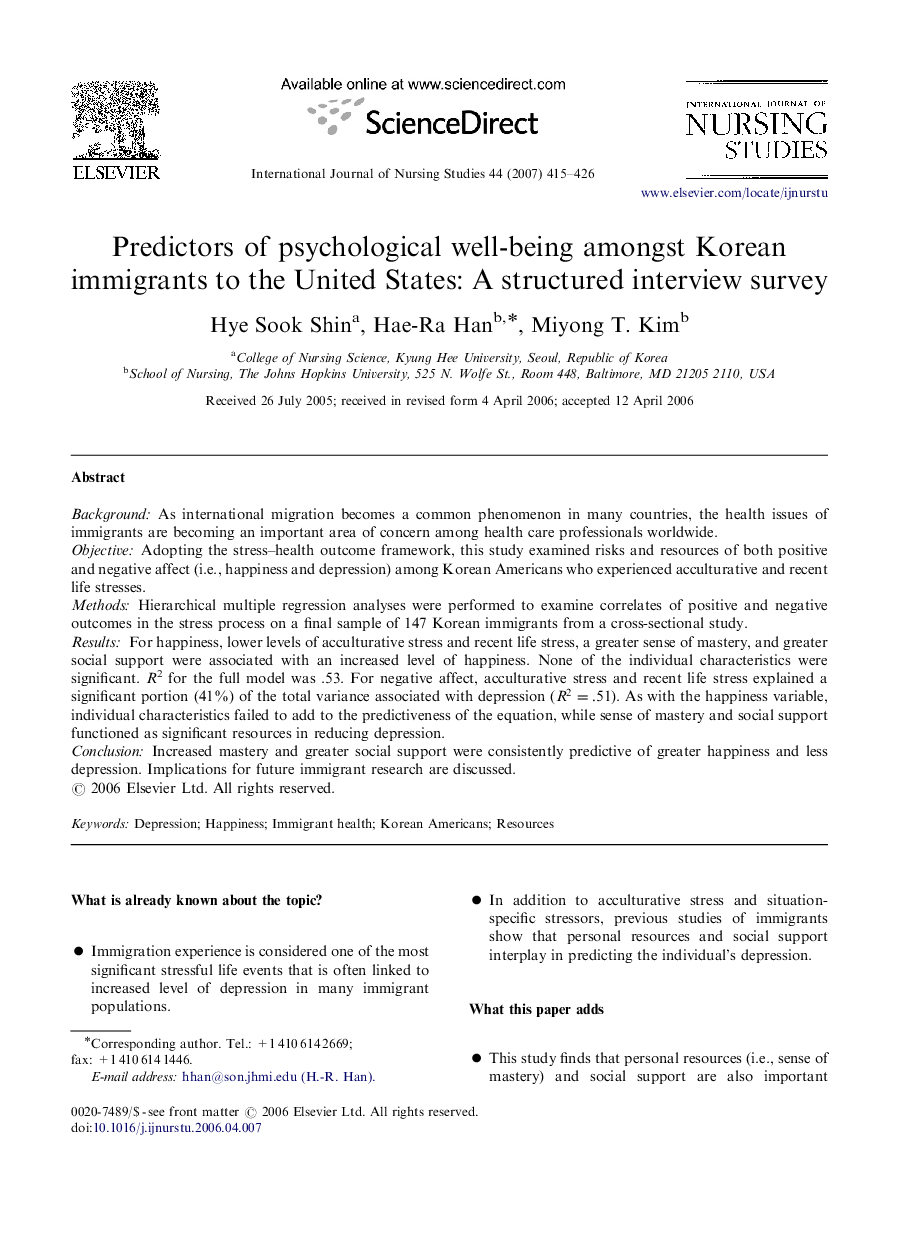| Article ID | Journal | Published Year | Pages | File Type |
|---|---|---|---|---|
| 1077500 | International Journal of Nursing Studies | 2007 | 12 Pages |
BackgroundAs international migration becomes a common phenomenon in many countries, the health issues of immigrants are becoming an important area of concern among health care professionals worldwide.ObjectiveAdopting the stress–health outcome framework, this study examined risks and resources of both positive and negative affect (i.e., happiness and depression) among Korean Americans who experienced acculturative and recent life stresses.MethodsHierarchical multiple regression analyses were performed to examine correlates of positive and negative outcomes in the stress process on a final sample of 147 Korean immigrants from a cross-sectional study.ResultsFor happiness, lower levels of acculturative stress and recent life stress, a greater sense of mastery, and greater social support were associated with an increased level of happiness. None of the individual characteristics were significant. R2 for the full model was .53. For negative affect, acculturative stress and recent life stress explained a significant portion (41%) of the total variance associated with depression (R2=.51R2=.51). As with the happiness variable, individual characteristics failed to add to the predictiveness of the equation, while sense of mastery and social support functioned as significant resources in reducing depression.ConclusionIncreased mastery and greater social support were consistently predictive of greater happiness and less depression. Implications for future immigrant research are discussed.
